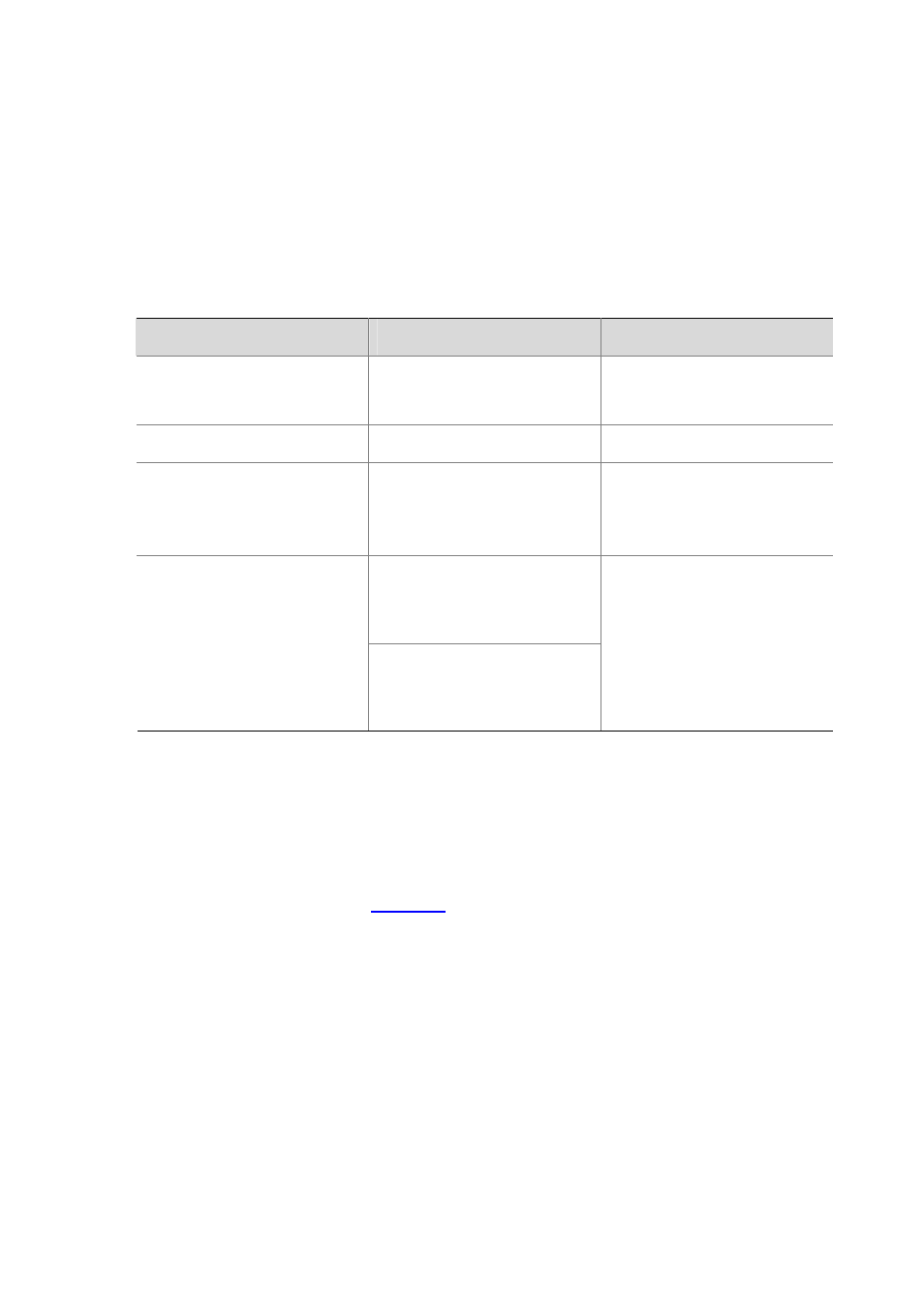Configuring the system clock, Displaying the system clock – H3C Technologies H3C S7500E Series Switches User Manual
Page 165

11-3
Configuring the System Clock
Configuring the system clock
The system clock, displayed by system time stamp, is decided by the configured relative time, time
zone, and daylight saving time. You can view the system clock by using the display clock command.
Follow these steps to configure the system clock:
To do…
Use the command…
Remarks
Set time and date
clock datetime time date
Optional
Available in user view.
Enter system view
system-view
—
Set the time zone
clock timezone zone-name { add
| minus } zone-offset
Optional
Universal time coordinated (UTC)
time zone by default.
clock summer-time zone-name
one-off start-time start-date
end-time end-date add-time
Set a daylight saving time scheme
clock summer-time zone-name
repeating start-time start-date
end-time end-date add-time
Optional
Use either command
By default, daylight saving time is
configured on the device, and the
UTC time zone is applied.
Displaying the system clock
The system clock is decided by the commands clock datetime, clock timezone and clock
summer-time. If these three commands are not configured, the display clock command displays the
original system clock. If you combine these three commands in different ways, the system clock is
displayed in the ways shown in
. The meanings of the parameters in the configuration
column are as follows:
z
1 indicates date-time has been configured with the clock datetime.
z
2 indicates time-zone has been configured with the clock timezone command and the offset time
is zone-offset.
z
3 indicates daylight saving time has been configured with the clock summer-time command and
the offset time is summer-offset.
z
[1] indicates the clock datetime command is an optional configuration.
z
The default system clock is 2005/1/1 1:00:00 in the example.
